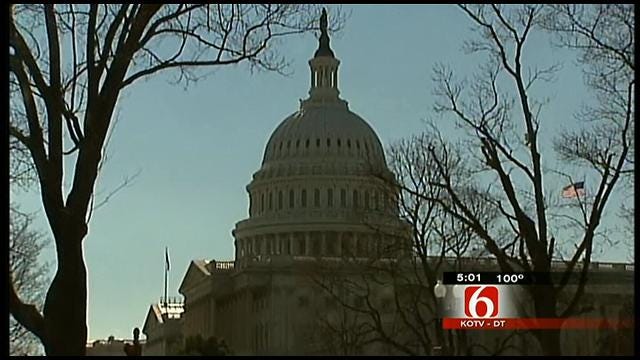Legal Expert: Healthcare Law Means New Taxes
Legal experts believe the only way the federal government can collect the tax a person must pay for not having health insurance is withholding it from their tax refund.Friday, June 29th 2012, 6:33 pm
One day after the U.S. Supreme Court upheld nearly all of President Obama's Patient Protection and Affordable Care Act Thursday, people still have questions about how the law will be implemented and who will be affected.
We've learned some people will be exempt from the law.
If you are an official member of a Native American tribe, you're exempt from the tax others will pay for not having health insurance.
Certain religious groups, ones who usually decline to pay Social Security and Medicare taxes on self-employed income, may qualify for exemption as well. This would include groups such as the Amish or Mennonites, who have a history of declining Social Security benefits and making provisions for themselves.
For everyone else, there will be a penalty for those who don't buy health insurance starting in 2014.
However, there is a consideration in the law for those who have an income above Medicaid eligibility and below 400 percent of the poverty level, who can't afford coverage, or whose employers do not offer acceptable coverage. They will be eligible for tax credits through exchanges, which would make it easier for them to afford coverage and avoid a penalty.
6/28/2012 Related Story: Supreme Court's Healthcare Decision Brings Cheers, Jeers
Legal experts believe the only way the federal government can collect the tax a person must pay for not having health insurance is withholding it from their tax refund.
Attorney David McKinney with GableGotwals law firm has more than 30 years of healthcare and employee benefit experience.
McKinney spoke to News on 6 and explained how he thinks the penalty might work.
We know the penalty will be phased-in over three years:
- 1% of your income or $95 in 2014
- 2% of your income or $325 in 2015
- 2.5% of your income or $695 in 2016
Beginning after 2016, the lowest fine will be $695, and that tax can be tripled to $2,085, depending on your income.
McKinney said he thinks he knows how the penalty might be collected.
"It cannot get a lien on your property and it cannot do a levy or a collection procedure," McKinney said. "So as far as I know, the only way that the penalty can be collected is through a tax refund."
McKinney said this part is revolutionary.
"They are counting tax-exempt income, which, by law—and I thought by Constitution—could not be taxed. They are counting that income to determine how big your penalty or your tax is," McKinney said.
McKinney said insurance companies will benefit greatly from the new law because of a larger clientele, and in order to max their profits, they'll cut out payments to health insurance brokers, who will essentially go out of business.
6/28/2012 Related Story: Oklahoma Medical Professionals React To Healthcare Decision
Another casualty of the law is the specialty or boutique hospital.
Doctors who want to start or expand a physician-owned specialty hospital will no longer be able to bill Medicare.
"Since Medicare is 35% of all healthcare reimbursements, they are not going to go into that business. So boutique hospitals are losers," McKinney said.
McKinney said Oklahoma benefits when it comes to medical residents.
We didn't have enough medical resident slots, and the law reformed how those slots are allocated across the country, giving Oklahoma more doctors.
More Like This
June 29th, 2012
September 29th, 2024
September 17th, 2024
Top Headlines
December 11th, 2024
December 11th, 2024
December 11th, 2024
December 11th, 2024











